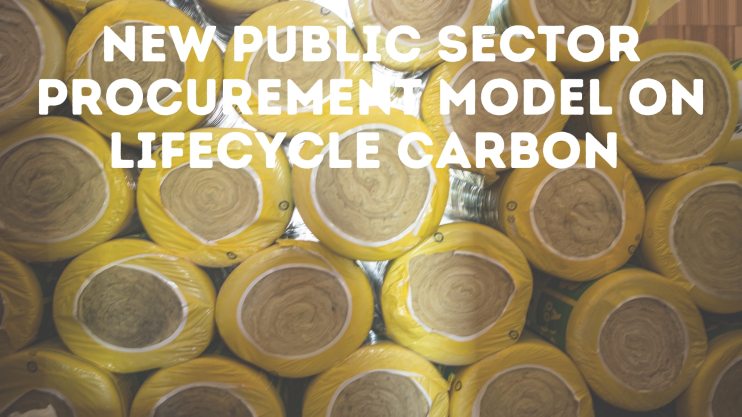
Circular Twin – Unlocking a low-carbon future for public buildings

With more than 300 councils and local authorities declaring a climate emergency, tackling carbon intensity across the public estate has become mission critical.
Support in delivering net zero targets
To support the public sector in delivering the government’s net zero targets by 2050, an industry-wide study has provided hard evidence as to how the public sector can deliver successful, low-carbon construction – with most of the answers hiding in plain sight.
Reducing carbon
Industry leaders including public sector procurement authority SCAPE, alongside Morgan Sindall Construction, HLM Architects, Cundall and Lungfish Architects, have worked together to develop a new process for designing and delivering construction projects, where reducing whole-life carbon is the primary objective. And this process doesn’t rely on expensive technologies – rather, it’s with a shift in approach from the initial phases that both carbon reduction and lower running costs can be achieved.
Favouring a lower carbon outcome
The landmark project, known as Circular Twin, involved digitally rebuilding an existing school – originally completed in 2017 – and reworking the scheme from start to finish so that each decision and design choice favoured a lower carbon outcome.
The ultimate objective was to create a new process that integrates the latest standards and thought leadership on sustainability to ensure that whole life carbon is placed at the heart of project design and development.
Challenging traditional principals
By overhauling traditional industry approaches to the procurement and build of public buildings, decisions were made based on the modelled lifecycle carbon of the building, not cost. Capital and operation costs were evaluated and forecast, but carbon was the key driver. This allowed the traditional principles of value defined by cost to be challenged, ultimately helping to achieve long-term cost savings through operational efficiency.
Drawing on contributions and guidance from more than 250 supply chain partners, the research demonstrated how early engagement and planning can allow simple changes to be made to create long-term carbon savings.
Radical reduction in carbon
The results speak for themselves. The new version of the school achieved a 67 per cent reduction in whole-life carbon and a 72 per cent reduction in upfront embodied carbon. The school’s annual energy consumption was also cut in half. The radical reduction in carbon and energy consumption came with a minor capital cost increase, which would be quickly offset with long-term cost savings and an extension to the building’s life span.
The project put into practice the net zero strategies outlined in the Construction Playbook and proves how the ultra-early alliance of public sector commissioning organisations, designers, contractors, and the supply chain can lead to significant reduction in whole life carbon for modest capital cost uplift.
By applying lessons learned from past projects, challenging existing assumptions and utilising unrivalled input from the supply chain, the Circular Twin findings have the potential to radically alter how the construction industry achieves its low carbon targets and empower local authorities to achieve their sustainability goals.
If Circular Twin can teach us one lesson, it’s that any part of a project team basing decisions on cost alone is inhibiting low carbon construction.
About SCAPE:
SCAPE is one of the UK’s leading public sector procurement authorities, dedicated to creating spaces, places and experiences that leave a sustainable legacy within the community.
Since 2006, SCAPE has accelerated over 12,000 projects across the UK with their direct award frameworks, property services and innovative architectural designs.
Working with SCAPE is all about partnership, bringing together the brightest talent from the construction industry and the local economy. SCAPE projects are collaborative, compliant and fully performance managed to ensure delivery efficiency, taxpayer value, targeted local economic enrichment and offer a direct response to the climate emergency.

SCAPE operates with a buying power of £18bn and is actively performance managing over 1,800 live projects. SCAPE is a member of the National Association of Construction Frameworks (NACF) and in 2020, was named in ‘The Sunday Times Top 100 Best Not-For-Profit Organisations to work for’ in the UK.
For more information visit: https://www.scape.co.uk.